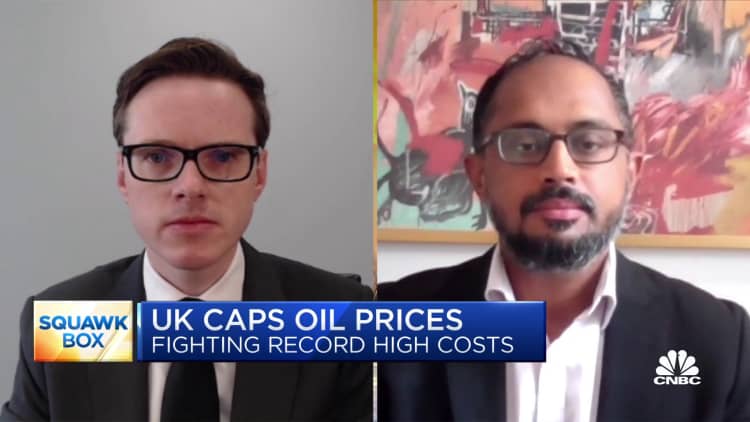
The country's cost-of-living crisis persists as food prices continued to rise despite a fall in fuel prices.
The consumer price index rose 9.9% annually according to estimates published by the Office for National Statistics. It was down from the previous month.
Consumer prices rose on a month-on- month basis. In line with expectations, core inflation was up 0.8% month-on-month and 6.3% year-on-year.
The fall in the price of motor fuels was the largest downward contribution to the change in the inflation rates.
The change in the rates was partially offset by rising food prices.
The U.K. has been hit by a historic cost-of-living crisis this year as food and energy prices skyrocket and pay increases fail to keep pace with inflation, which has led to one of the biggest falls in real wages on record.
Liz Truss, the new British Prime Minister, announced an emergency fiscal package capping annual household energy bills at £2,500 for the next two years, with an equivalent guarantee for businesses over the next six months.

The measures are expected to reduce the inflation outlook in the short term but increase it over time.
The Bank of England is set to announce its latest monetary policy decision next Thursday after a delay due to the death of Queen Elizabeth II and is widely expected to opt for a sharp 75 basis point increase to interest rates.
At its last meeting, the Bank projected that inflation would peak at 13.3% before the end of the year, and policymakers will beappraising their outlook in light of the new energy cap announcement.
Richard Carter, head of fixed interest research at Quilter Cheviot said, "With hope, the cap on energy bills may mean inflation is now close to peaking, though last month's fall could likely be a ruse and we may see inflation climb further still in the months to come."
It comes at the cost of higher levels of borrowing and government spending which could encourage the Bank of England to hike rates even further than originally expected.